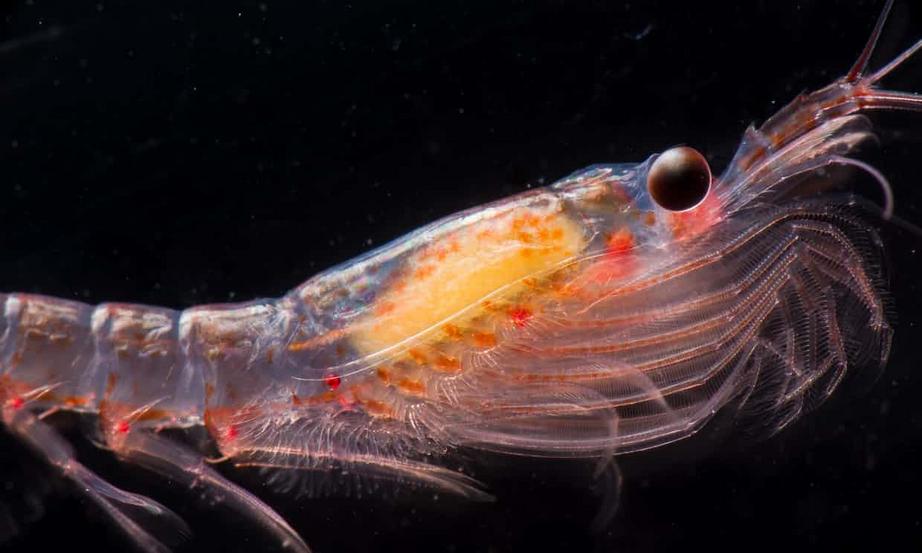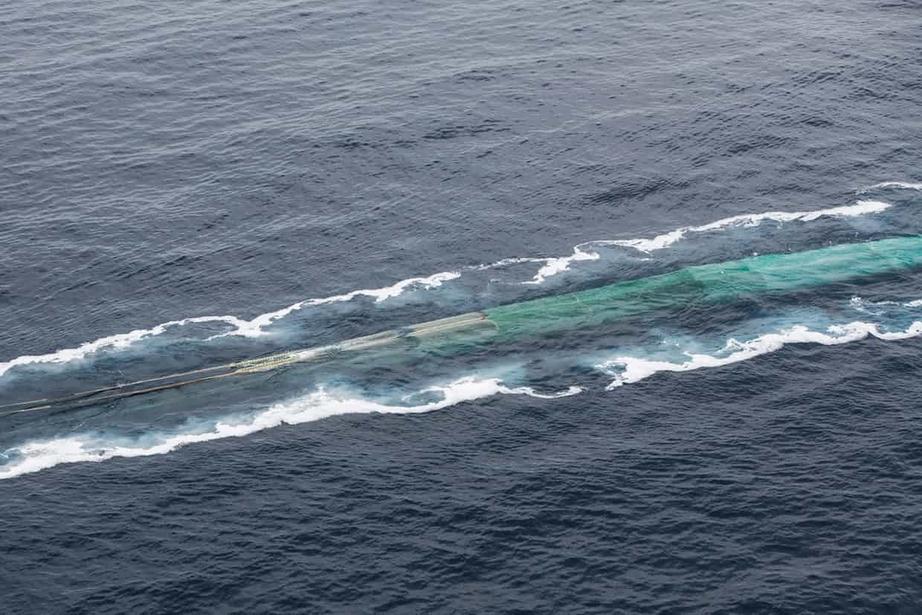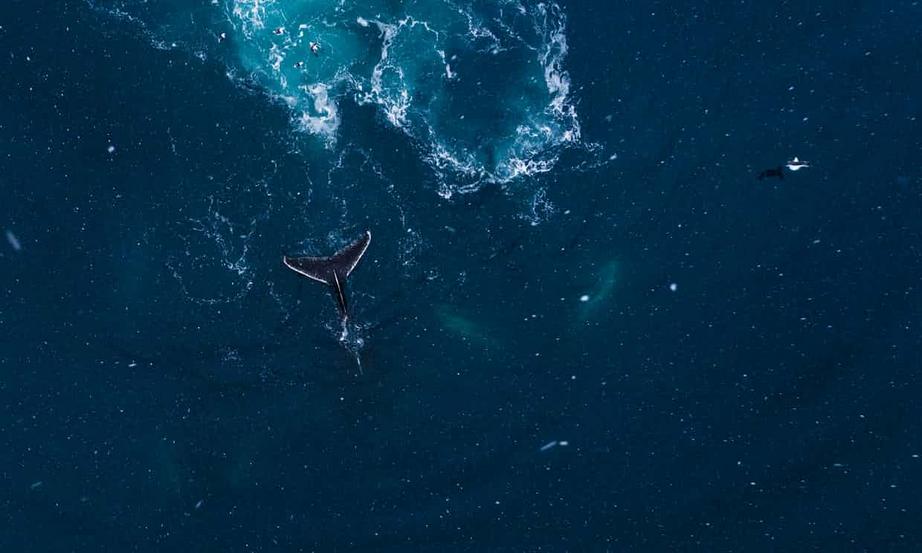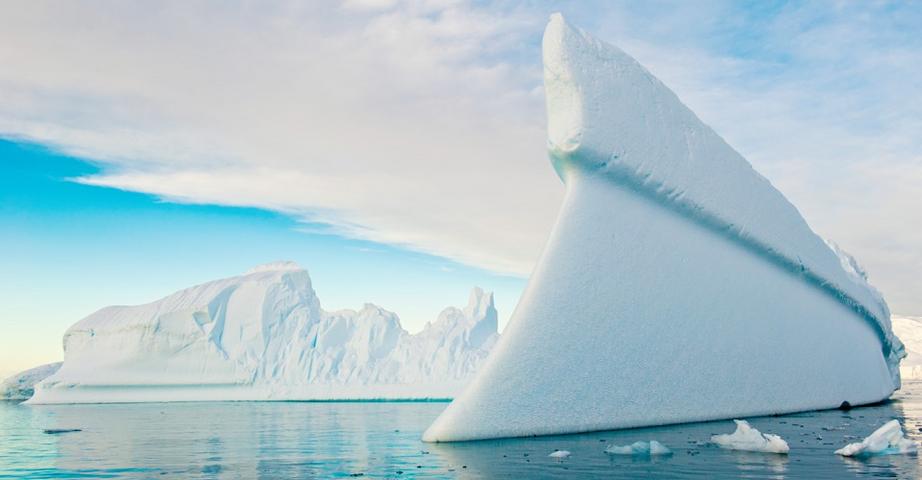Krill fishing poses serious threat to Antarctic ecosystem, report warns
Greenpeace finds industrial fishing taking place in the feeding grounds of whales and penguins, with vessels involved in oil spills and accidents
Industrial fishing for krill in the pristine waters around Antarctica is threatening the future of one of the world’s last great wildernesses, according to a new report.
 Justin Hofman
Justin Hofman
The study by Greenpeace analysed the movements of krill fishing vessels in the region and found they were increasingly operating “in the immediate vicinity of penguin colonies and whale feeding grounds”.
It also highlights incidents of fishing boats being involved in groundings, oil spills and accidents, which it said posed a serious threat to the Antarctic ecosystem.
The report, published on Tuesday, comes amid growing concern about the impact of fishing and climate change on the Antarctic. A global campaign has been launched to create a network of ocean sanctuaries to protect the seas in the region and Greenpeace is calling for an immediate halt to fishing in areas being considered for sanctuary status.
Frida Bengtsson, from Greenpeace’s Protect the Antarctic campaign, said: “If the krill industry wants to show it’s a responsible player, then it should be voluntarily getting out of any area which is being proposed as an ocean sanctuary, and should instead be backing the protection of these huge swaths of the Antarctic.”
Last month a study found a combination of climate change and industrial-scale fishing is hitting the krill population, with a potentially disastrous impact on larger predators.

Krill fishing in the vicinity of Trinity Island. Photograph: Daniel Beltrá/Greenpeace
The study warned that the penguin population could drop by almost one-third by the end of the century due to changes in krill biomass.
Krill are a key part of the delicate Antarctic food chain. They feed on marine algae and are a key source of food for whales, penguins and seals. They are also important in removing the greenhouse gas carbon dioxide from the atmosphere by eating carbon-rich food near the surface and excreting it when they sink to lower, colder water.
There is a growing global demand for krill-based health products which are claimed to help with a range of ailments from heart disease to high blood pressure, strokes and depression.
A recent analysis of the global krill industry predicted it was on course to grow 12% a year over the next three years.
Krill populations have declined by 80% since the 1970s. Global warming has been blamed partly because the ice that is home to the algae and plankton on which krill feed is retreating.
However, campaigners say recent developments in fishing technology are exacerbating the problem.
Tuesday’s report analysed the krill fleet’s “mandatory automatic identification systems” [AIS] which shows the trawlers’ routes and when they were at “fishing speed.” In doing so researchers say they were able to get a record of industrial fishing in the feeding grounds of whales and penguins.
A global campaign has been launched to turn a huge tract of Antarctic seas into ocean sanctuaries, protecting wildlife and banning all fishing.
One was created in the Ross Sea in 2016, another 1.8m sq km reserve is being proposed in a vast area of the Weddell Sea, and a third sanctuary is under consideration in the area west of the Antarctic peninsula – a key krill fishing area.
The Commission for the Conservation of Antarctic Marine Living Resources (CCAMLR), whose members include 24 national governments and the EU, manage the seas around Antarctica. It will decide on the Weddell Sea sanctuary proposal at a conference in Australia in October, although a decision on the peninsula sanctuary is not expected until later.

Humpback Whales Feeding in Paradise Bay, Antarctic Peninsula. Photograph: Christian Åslund/Christian Åslund / Greenpeace
Keith Reid, a science manager at CCAMLR said the organisation sought “a balance between protection, conservation and sustainable fishing in the Southern Ocean.”
He said although more fishing was taking place nearer penguin colonies it was often happening later in the season when these colonies were empty.
He added: “The creation of the a system of marine protected areas is a key part of ongoing scientific and policy discussions in CCAMLR.”
Cilia Holmes, sustainability director at Aker BioMarines, one of the leading krill fishing companies based in Norway, said they were looking forward to working with Greenpeace and other environmental groups to ensure the region was protected.
“Our long-term operation in the region depends on a healthy and thriving Antarctic marine ecosystem, which is why we have always had an open dialogue with the environmental NGOs, and especially WWF.
“We strongly intend to continue this dialogue, including [with] Greenpeace, to discuss improvements based on the latest scientific data. We are not the ones to decide on establishment of marine protected areas, but we hope to contribute positively with our knowledge and experience.”
For full references please use source link below.

